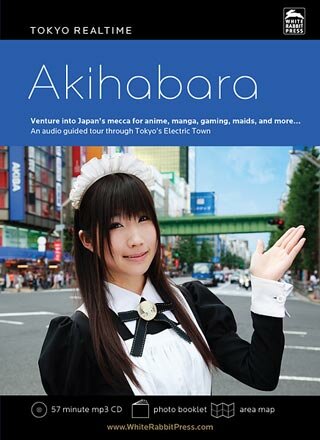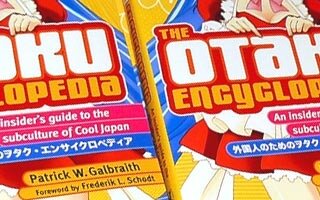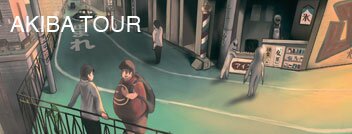 Filed under: Moe Akihabara
Filed under: Moe AkihabaraTezuka Osamu goes moe
19.09.2010 by Patrick W. Galbraith
I have nothing but love for Tezuka Osamu. Hell, I traveled across Japan just to visit the museum dedicated to him. But I never thought I would see the day when this pioneer of manga and anime would break in the moe community. Well, I thought wrong. Enter "Osamu Moet Moso," an exhibition being held at the Tokyo Anime Center in Akihabara from September 18 to October 11. The concept? "Fantasize with Tezuka Osamu." And what a line up of artists responded to the call!
Pop ("Moetan"):
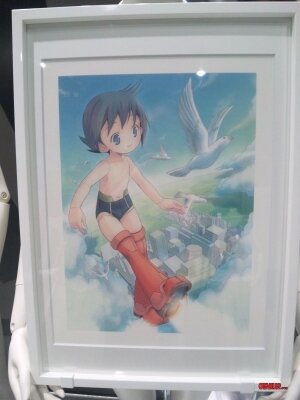
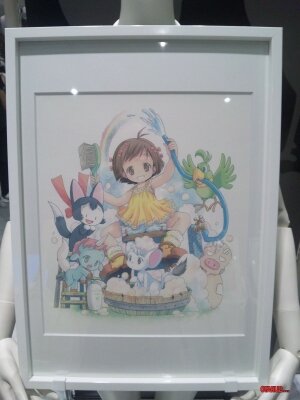
Kei (Hatsune Miku):
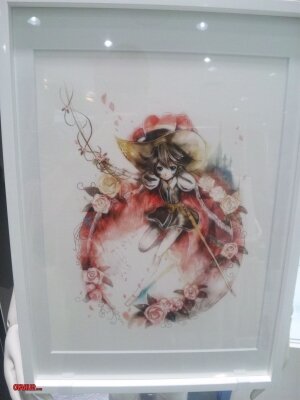
Ito Noizi ("The Melancholy of Haruhi Suzumiya," "Burning-Eyed Shana"):
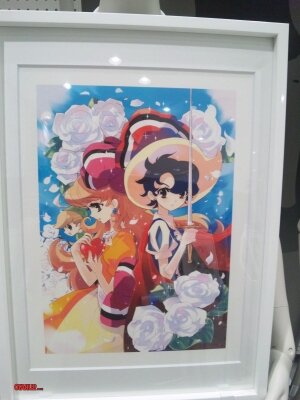
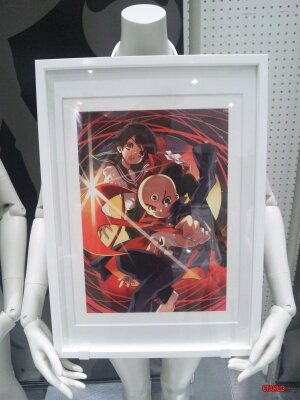
Mikimoto Haruhiko ("Super Dimensional Fortress Macross"):
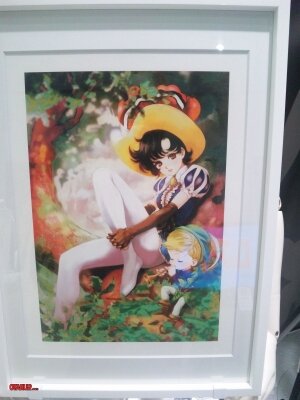
Yoshizaki Mine ("Sgt. Frog"):
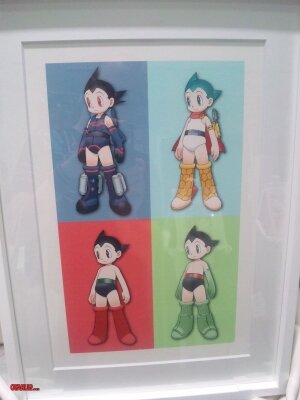
Murata Range ("Blue Submarine No. 6," "Last Exile"):
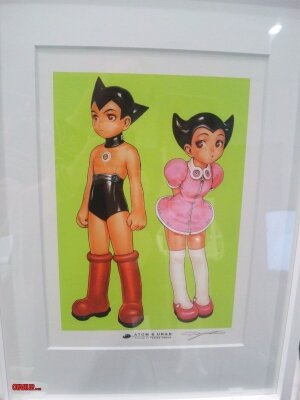
The list goes on. Frankly, I was a little shocked (as much as when Hello Kitty went moe). Astro Boy as a shota character?! I knew "Marvelous Melmo" was hot, and "Yakeppachi no Maria" and certain portions of "Phoenix" had moments, but this was unexpected. Tezuka meets moe, and gets along surprisingly well.
I consulted an expert on moe, Honda Toru, famous for advocating that men marry characters from anime, manga and games and cast off the oppressive system of dating women.
“I think we can blame Tezuka Osamu for moe culture. Tezuka started making story manga after World War II, and it was a cheap, accessible outlet that spread quickly and continues to this day. The stories were interesting and the characters were extremely cute, and this tendency continued. For kids of all backgrounds, manga and anime are a part of growing up. Tezuka drew characters that appeared to be children, and they were small and cute. Even when Tezuka drew adults that look small and cute. If you compare these drawing to American comic books or Disney animation, you notice that even when the age setting is supposed to be the same, Japanese characters look much younger and more innocent. They also are more sexually appealing. This became a convention. People grow up with that and develop desires through that image. You get used to seeing cute characters. Many people learn to draw them.”
OK, so Tezuka got the ball rolling on the medium, but aren't moe characters a fundamentally different breed than those in story manga?
With moe characters, “there is a focus on jingai [inhuman], such as animals, robots, aliens, angels and so on. This marks the character as not a normal human and not part of reality. They are ideal and pure. I personally think this comes from Tezuka, for example the story in 'Phoenix' where a man falls in love with a robot that looks like a beautiful girl. In the story, the protagonist’s brain processes robots to appear beautiful and humans ugly. I think that was an expression of Tezuka’s own view of the world.”
Honda adds that stock themes like gender bending also go back to Tezuka works like "Princess Knight," and the heroine Sapphire has both male and female characteristics.
Ito Go, who suggests in his provocative book "Tezuka is Dead" that criticism focused on story manga is outdated, agrees that Tezuka manga is moe.
“The most moe of all Tezuka’s manga were released during the early to mid- 1960s, which originates in his power of circular lines. Moe is the discovery of the pleasure of these circular lines, which would not happen again until the 1990s. There were people in between, however. Azuma Hideo...is the person who exposed the erotic aspects of Tezuka’s drawings. Takahashi Rumiko and Fukuyama Keiko were also influential in their round lines and soft characters. There are a type of picture called 'puni-e,' which capture the feeling of squishy flesh, and it is the style that came out of the latent moe in Tezuka’s round lines. Once Natsume Fusanosuke [the famous manga critic] said that he does not understand moe, but he could connect it through the eroticism of lines in Tezuka’s works.”
There you have it. Over two decades after his death, Tezuka still is on the cutting edge. He tried his hand at virtually every genre, and were Tezuka alive he may well be working in moe.
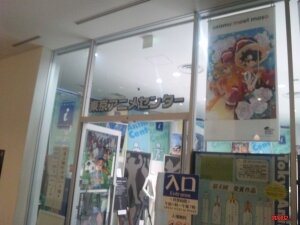
Editor's note: Helen McCarthy also traces the origins of moe to Tezuka. Check out her blog.
Comment on this article

20.01.2011 · Blog
Akihabara gearing up for new Pedestrian Paradise
Been over two years coming, but Akihabara's Pedestrian Paradise is back this Sunday. It will be held every Sunday from 13:00 to 17:00 until...
02.01.2011 · Blog
Moe for something with value...
I had to snap a picture of this advertisement for a girls' school in Suginami, an area known for its high concentration of anime production...
28.12.2010 · Blog
New Year's bishojo
Encouraging tourism (not to mention rampant consumption) with images of cute anime girls is certainly nothing new, but here's a double...
20.12.2010 · Blog
Top of the Christmas wish list
Official Katsuragi Misato pendant from "Neon Genesis Evangelion." It is large, but apparently just hollow aluminum (or so the helpful young...
24.10.2010 · Blog
Tokyo International Anime Fair in Akihabara
Well, the Tokyo Anime Fair Tokyo International Anime Fair has come and gone again. This time was the autumn addition, the "sister event" of...
01.07.2010 · Features
Momoi Halko: The voice of moe is surprisingly deep!
Interview excerpts and random thoughts
17.05.2010 · Blog
Nippombashi in Akihabara
Just walking on a side street in Akiba and looked up to see a giant billboard featuring Neon-chan from ita laptop I have been lusting after...
28.04.2010 · Blog
Evil behind the Akiba Smile!
This advertisement is rich, given the "Evangelion" - "God's in his Heaven. All's right with the world!" Who are they trying to convince? We...
24.04.2010 · Blog
Akihabara Gundam Cafe & Bar Opens Tomorrow!
Look out Starbucks the grand opening of the Akihabara Gundam Cafe and Bar starts tomorrow at 8:30am. I've lived here long enough to never...






1.jpg)















